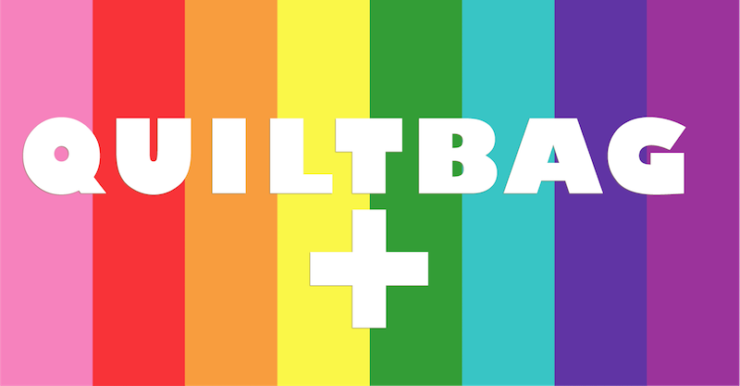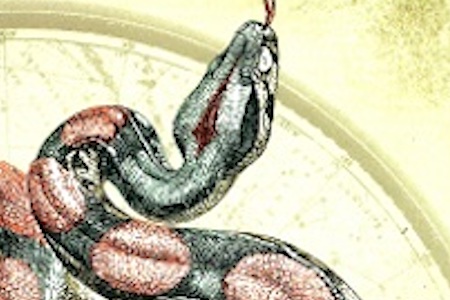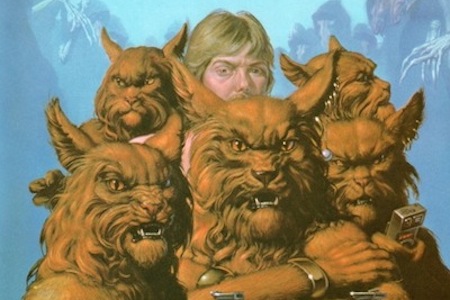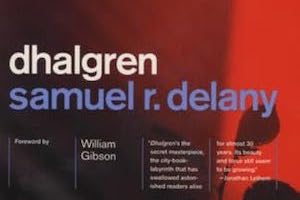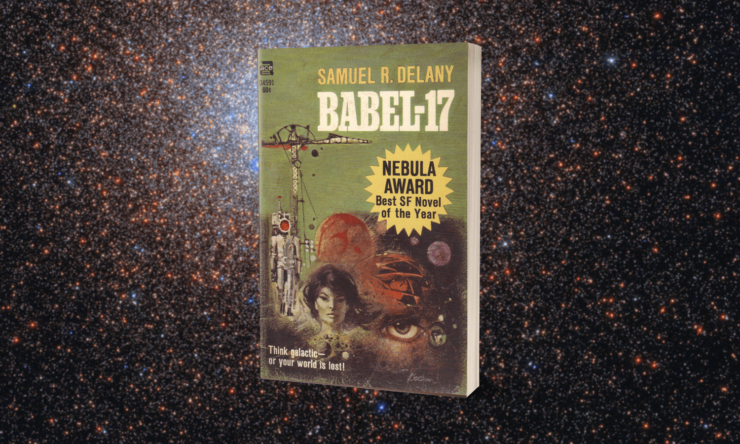In this series of columns, I will review classics of QUILTBAG+ speculative fiction—often out of print, little-known and seldom discussed. Even novels which were acclaimed in their day are frequently ignored now, creating the false impression that all QUILTBAG+ SFF is very recent.
For those who may be unfamiliar with the term, QUILTBAG+ is a handy acronym of Queer, Undecided, Intersex, Lesbian, Trans, Bisexual, Asexual / Aromantic / Agender, Gay and a plus sign indicating further expansion. I find that it is easier to spell and remember than other variants of the acronym like LBGTQIA+.
Before we move on to specific books, I want to discuss exactly what I’m going to be covering and why, as I feel that every decision of inclusion or exclusion has a set of underlying assumptions and aims. Being explicit about my underlying assumptions will ideally prove helpful for everyone, and it might also be revealing about speculative fiction in general.
Joanna Russ cataloged the mechanisms of literary erasure and suppression in How to Suppress Women’s Writing, specifically focusing on English-language women’s work; but her points apply more generally to work by marginalized writers. Therefore I expressly tried to counteract these mechanisms, and focus on work that dropped out of the speculative canon. (If you are curious about these mechanisms, please see Lee Mandelo’s article about the Russ book, which also includes the cover that features a list of the mechanisms themselves.)
I picked 2010 as the upper threshold for including books. This was the year after the events of RaceFail’09, when English-language speculative fiction had a reckoning with marginalization. Publishers vowed to do better, not just about race, but also about gender and sexuality. But the emphasis on marketing new, more diverse books often led to ignoring the books that already existed. 2010 is also a round number that’s easy to recall!
Last year on Twitter, I asked for pre-2010 work by minority SFF writers with the hashtag #DiverseClassics, and started a Goodreads list for the same. This list includes writers belonging to all sorts of minority groups, not just QUILTBAG+. In this series I will focus on this specific categorization, with further Tor.com columns filling other gaps—for example, Nisi Shawl’s wonderful History of Black Science Fiction.
One particular danger that strikes QUILTBAG+ book lists is that they tend to be very heavily skewed toward white Anglo-American authors. Thus I will not only include, but emphasize racial and/or ethnic minority writers, disabled writers, and also works in translation—as these are the books that tend to fall off the radar first, regardless (and often despite) any quality factors. Likewise, I intend to concentrate on the letters of the QUILTBAG+ that are less commonly discussed: trans, intersex, asexual, and bisexual authors and themes.
In my reviews of more recent work, I usually focus on marginalized authors rather than themes. But when we go back to the 1980s, or even as late as the early 2000s, it can become unreasonable to expect to see authors labeling themselves in great detail. In past decades, publishing speculative fiction with QUILTBAG+ content was such a rarity that it would stigmatize writers and push them into the “queer box” regardless of how they identified. There is very little biographic information about several authors whose work I will be reviewing. Several writers released a novel or two, and then stopped publishing altogether. Often there are no author photographs, no entries in lexicons.
On the other hand, I also don’t want to pigeonhole QUILTBAG+ writers and only show interest in their work if it is about their specific marginalization. I want to see minority writers write whatever they want. If they (we) want to write about cephalopods in space, I am all for that! Therefore I opted to include work either by QUILTBAG+ authors (where this is known) or with QUILTBAG+ themes. Often these two coincide, but not necessarily so.
A specific difficulty is whether to include people with non-Western, culturally specific gender, sex or sexuality IDs. Often these people also use at least some Western terms to self-identify, but sometimes they don’t—especially Indigenous people. If someone has expressed a desire not to be included in Western terms, both umbrella or specific terms, I will of course respect that. But in the absence of explicitly opting out, and also if the authors use Western terms, I decided on the side of inclusion. One of my motivations in this is somewhat self-serving: I also have a culturally specific gender / sex (though I am not Indigenous, specifically) and I am interested in other people who do too!
I aim to discuss a new book every two weeks. I will begin next week with The Gilda Stories, the queer Black / Indigenous vampire classic by Jewelle Gomez, and then follow with The Fortunate Fall by Cameron Reed, possibly the first SFF novel by an intersex author—which also draws a parallel between being intersex and sharing a mind with a giant whale.
Which are your favorite #DiverseClassics? Months after beginning my search, I still find out about older titles all the time. Tell me about that one book that blew you away, the one that makes you squeal in delight when you come across a dusty used copy, the one that you lend to your friends with great enthusiasm, but also trepidation…
Bogi Takács is a Hungarian Jewish agender trans person (e/em/eir/emself or singular they pronouns) currently living in the US with eir family and a congregation of books. Bogi writes, reviews and edits speculative fiction, and is currently a finalist for the Hugo, Lambda and Locus awards. You can find em at Bogi Reads the World, and on Twitter and Patreon as @bogiperson.










